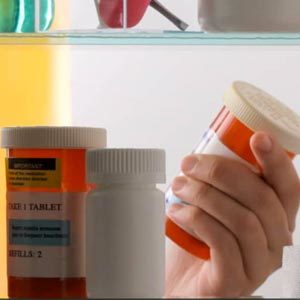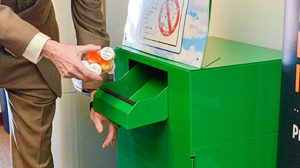What Seniors Should Know About Opioids
We all want happy, healthy lives. As we get older, we might need to take medication to make sure we do that. That’s why 65 percent of American seniors take three or more prescription medications.
It’s important to understand your medications and how they interact with each other. When taken in combination, some medications can present special risks – most notably prescription pain medicine such as opioids. Medication can also have serious interactions with alcohol.
Anyone taking or considering taking opioids should talk with a doctor and pharmacist about the following:
- Interactions with other medications
- Interactions with alcohol
- How to safely use opioids and all other medication
- How to safely store medication
- How to properly dispose of medication
Keeping a list of the medications you take and making sure to share with your doctor and pharmacist is a great way to get started. Here’s a version you can print at home.
Solution #1: Only Take Medicine Prescribed to You
The best way to prevent potentially deadly medication interactions is to only take medication prescribed to you, as directed by a doctor or pharmacist. This also means you should never share your medication with others. Never provide opioids, or any prescription medication, to a friend or family member. If they are experiencing pain, over-the-counter pain relievers are the only medication that should be provided. If further treatment is needed, that person should seek medical attention.
Solution #2: Store Medication in a Safe Place
 It’s not something we want to think about, but in more than 70 percent of cases where opioids have been abused (taken for non-medical reasons), the medication came from a friend or relative. In some cases, opioids are taken from a friend or relative without them knowing.
It’s not something we want to think about, but in more than 70 percent of cases where opioids have been abused (taken for non-medical reasons), the medication came from a friend or relative. In some cases, opioids are taken from a friend or relative without them knowing.
Storing medication in a secure place where it is out of sight from visitors is a simple way to reduce this risk. One important note: bathroom drawers or medicine cabinets are some of the worst places to store medication. Many medications should be kept in places that are cooler and dryer than a bathroom. Also, because bathrooms are private places, a visitor can access medication without you knowing.
Get more ideas about how to safely store medication by watching our short video.
Solution #3: Safely Dispose of Old & Expired Medication
 Medication can go unused for a lot of reasons: it wasn’t effective or created undesirable side effects. Treatment plans can change and symptoms can improve. Sometimes, your doctor could prescribe more medication than you need.
Medication can go unused for a lot of reasons: it wasn’t effective or created undesirable side effects. Treatment plans can change and symptoms can improve. Sometimes, your doctor could prescribe more medication than you need.
Remember, even if you took a medication a few months or a few years ago and it helped, that medication was prescribed based on your health and conditions at the time. Maybe you started taking a new medication since then, or your overall health has changed.
The best thing to do with unused or expired medication is to safely dispose of it. There are more than 160 locations in Colorado where you can drop-off old medication. Find a location near you.
Remember, flushing or throwing away medication contaminates our water and soil.
For information about how to dispose of medication, where to find a takeback site, what medications need special arrangements, visit our safe medication disposal page.
